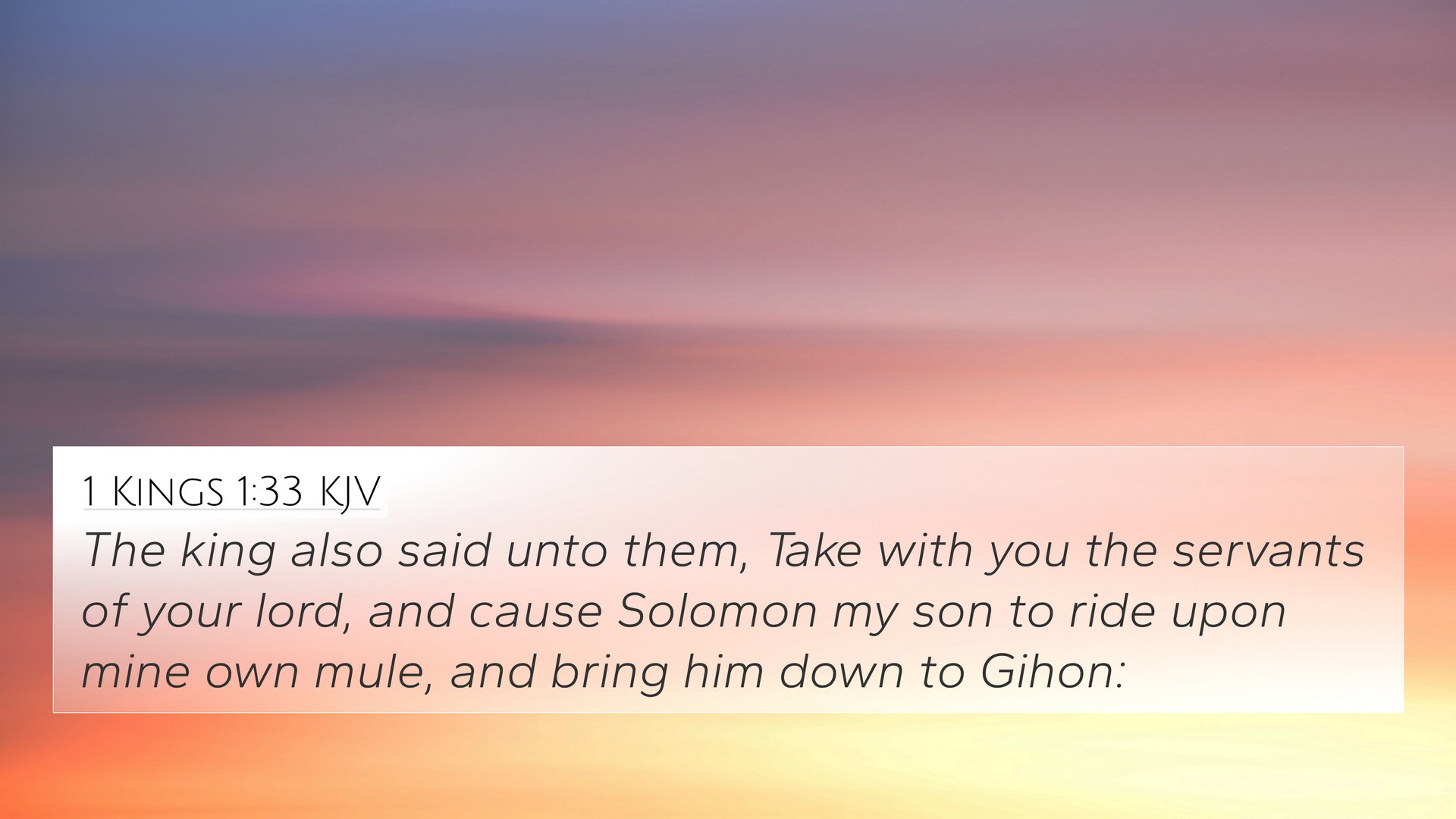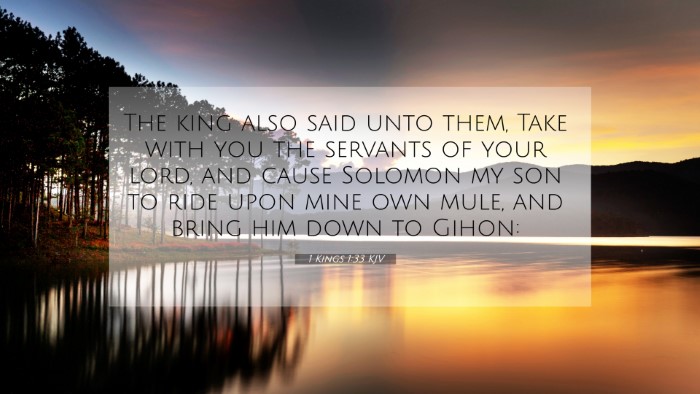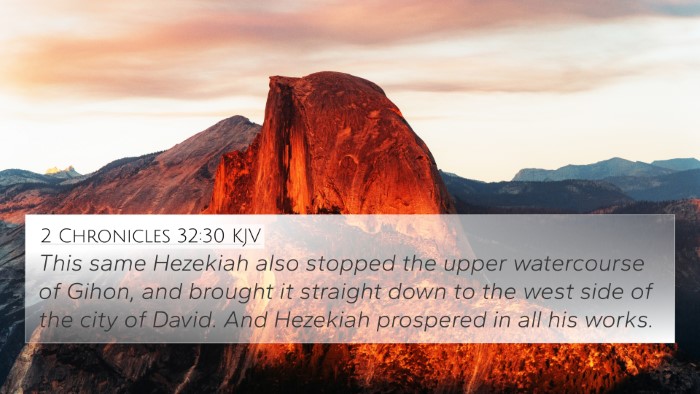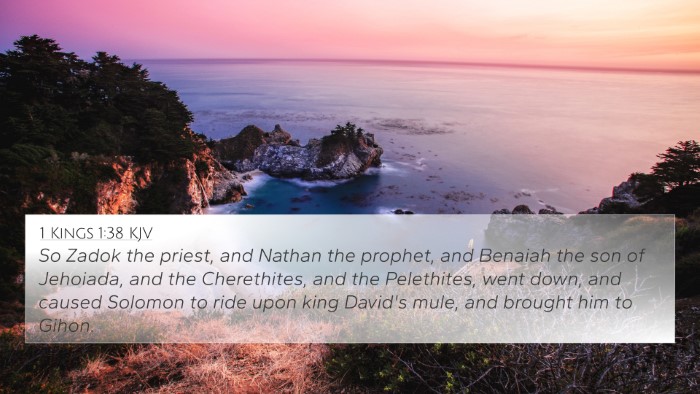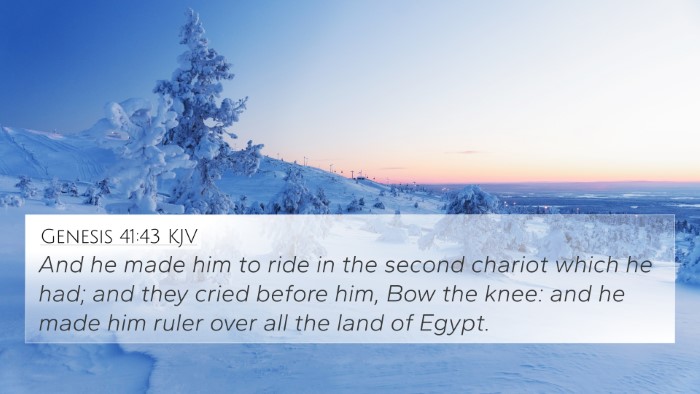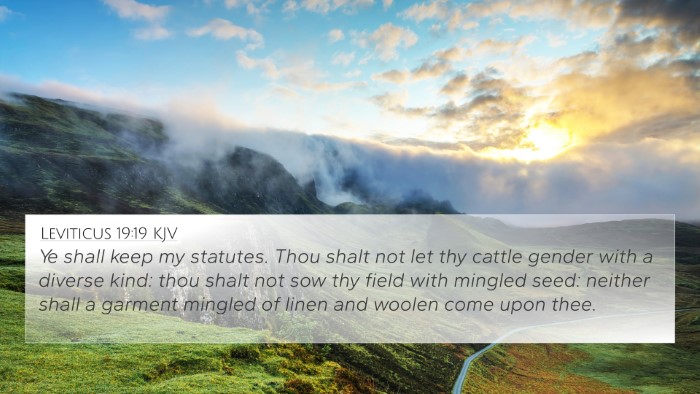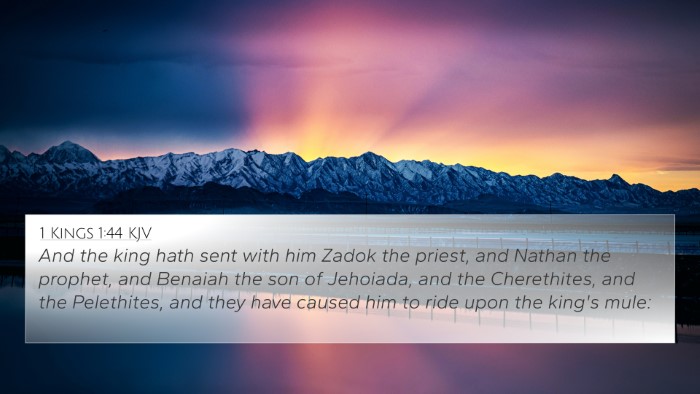Understanding 1 Kings 1:33
Verse: “And the king said unto them, Take with you the servants of your lord, and call Solomon my son to ride upon mine own mule, and bring him down to Gihon.”
Historical Context
This verse is situated in a critical moment in Israel’s history. King David, nearing the end of his reign, must make a decision on his successor amidst a backdrop of political strife. The events unfold during a time filled with rivalry, particularly from Adonijah, one of David's other sons who had declared himself king.
Thematic Analysis
- Transition of Power: This verse symbolizes the transition from David to Solomon, a pivotal moment in Israel's monarchy.
- Divine Appointment: The act of Solomon riding on David's mule underscores the divine approval of Solomon's kingship.
- Faithful Communication: David’s command shows the importance of clear communication and delegation in leadership.
Commentary Insights
According to Matthew Henry, this verse illustrates the solemnity of the occasion, as David elects to announce the future king through a ceremonial act. He emphasizes the symbolism of the mule representing peace and the rightful authority that Solomon is to inherit.
Albert Barnes extends this by noting the significance of Gihon, as it was a place of both anointing and public recognition. Thus, the choice of location amplifies the import of Solomon's installation as king, being both a physical and spiritual anointing.
Adam Clarke further elaborates that the act of riding upon the king’s mule was not merely ceremonial; it was a public declaration meant to unify the people under Solomon’s reign and counteract the unrest caused by Adonijah. Clarke points out that it implies the continuity of David’s legacy through Solomon.
Cross-References
- 1 Kings 1:39: The anointing of Solomon at Gihon by Zadok the priest.
- 2 Samuel 15:1: The rise of Absalom as an example of rebellion stemming from familial strife.
- 1 Chronicles 29:22: Solomon's installation and the people’s willingness to follow him.
- 1 Kings 2:4: The fulfillment of David's promise that his successors would reign as sons of God.
- 1 Kings 2:12: Solomon's ascension to the throne and its divine endorsement.
- Proverbs 4:7: Wisdom and understanding being foundational for kingship, connecting Solomon’s reign back to divine wisdom.
- Psalm 72:1-2: A prayer for Solomon, emphasizing justice and righteousness in governance.
Applications for Today
The essence of 1 Kings 1:33 resonates with modern readers in several ways:
- Leadership: The dynamics of leadership transition remind us of the importance of clear succession plans in any organization.
- Ceremonial Significance: The acts of recognition and celebration can unify communities, emphasizing their role in our lives.
- Spiritual Foundations: Solomon’s reign challenges us to consider how we pursue wisdom and understanding in our lives.
Conclusion
1 Kings 1:33 encapsulates the significant moment of Solomon’s ascension, underlining themes of divine appointment, authority, and the importance of legacy. In the study of this verse, we are offered a glimpse into the multifaceted layers of scripture, which invites profound reflection and application in our lives today.
Final Thoughts on Cross-Referencing Bible Verses
Utilizing tools for bible cross-referencing enhances our understanding of scripture. By identifying the connections between Bible verses, such as those observed here with 1 Kings 1:33, we can develop a richer, more contextual understanding of Biblical narratives. Techniques for cross-referencing Bible study allow us to uncover Bible verses that relate to each other, supporting deeper theological reflection.
